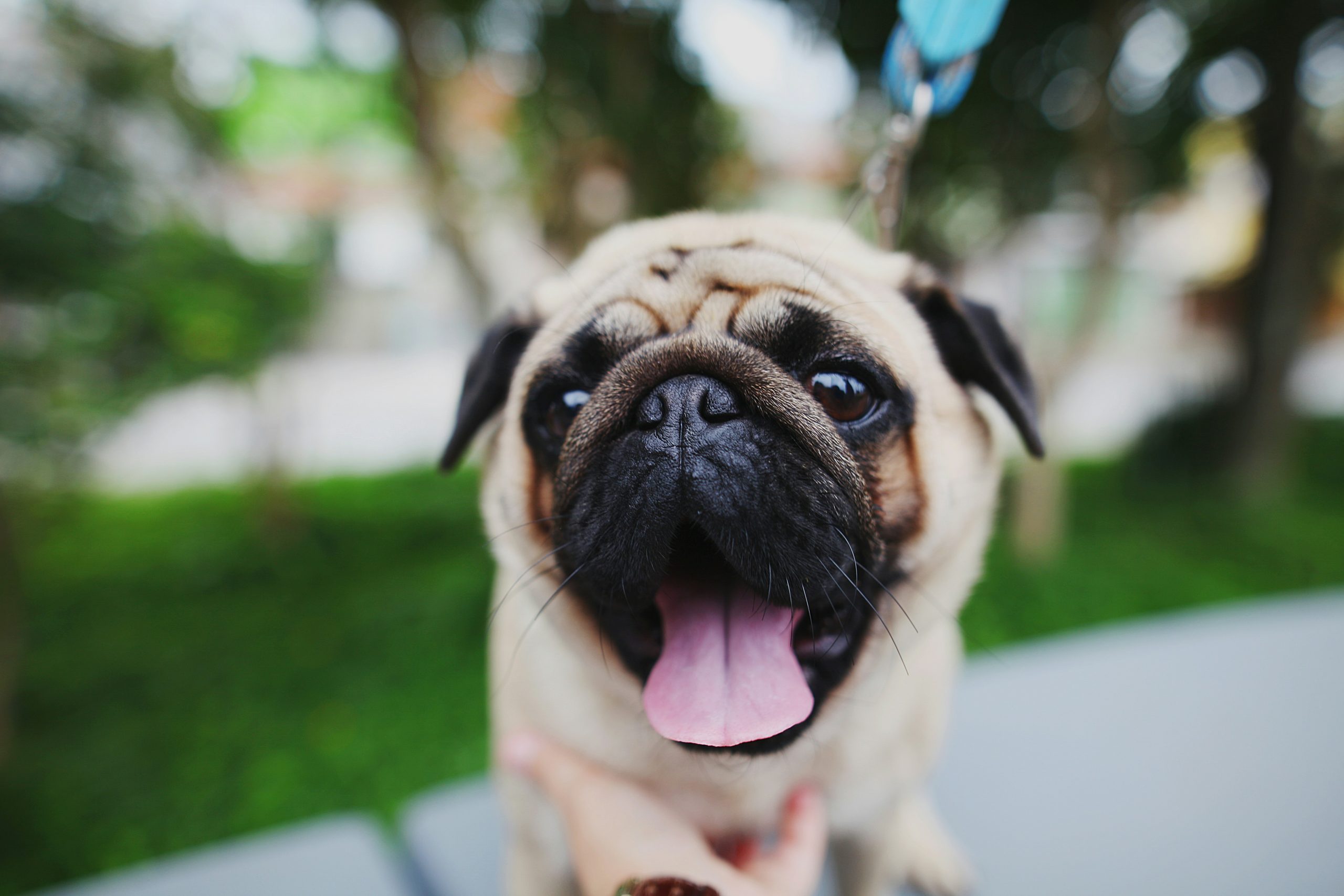Sneezing is a common occurrence in dogs and can be a fascinating, if somewhat messy, part of dog ownership. However, some dog breeds are more prone to frequent sneezing due to various factors such as their physical characteristics, environmental sensitivity, and genetic predisposition. While the occasional sneeze is normal for all dogs, some breeds experience it more frequently, and understanding the reasons behind it can be both intriguing and important to their health. In this article, we will learn about the top 10 dog breeds that are known to have a tendency to sneeze more than others. From brachycephalic breeds with unique facial structures to breeds with increased allergic reactions, each of these breeds has specific causes that make them more prone to sneezing.
1. pug
Pugs are known for their adorable, slanted faces, but this brachycephalic trait also makes them prone to frequent sneezing. Their narrowed nasal passages and folds of skin on their face can trap pollen, dust and other irritants, leading to more sneezing. Additionally, their smaller nasal passages mean that Pugs often have to work harder to clear their airways, resulting in sneezing. Pugs are also sensitive to allergens, which can increase their sneezing. Regular cleaning of their facial layers and monitoring for allergens can help control their sneezing.
2. Bulldog
English and French Bulldogs are another brachycephalic breed that sneezes frequently. Their flat faces and wrinkled skin around their nose can cause irritation, causing them to sneeze to clear their nasal passages. Additionally, Bulldogs often suffer from a condition called stenotic nostrils, where their noses are too narrow, making breathing (and thus sneezing) more challenging. Keeping their nasal area clean and ensuring they live in a relatively dust-free environment can help reduce their sneezing.
3. Boxer
Boxers with short noses and broad heads are prone to frequent sneezing. Their brachycephalic nature makes them susceptible to respiratory problems and allergies, which can lead to sneezing. Boxers may also have sensitive sinuses, which become easily irritated by dust, pollen or other airborne particles. Providing a clean living environment and being attentive to their allergic reactions can help reduce their sneezing.
4. Shih Tzu
Shih Tzus, with their long hair and short muzzles, are prone to sneezing more often. Their hair can collect pollen and dust, which can irritate their nose and cause sneezing. Additionally, the shape of their faces means they are more likely to take these irritants head-on. Regular grooming and keeping their faces clean is essential to help reduce sneezing in Shih Tzus. Additionally, monitoring and managing environmental allergies may also be beneficial.
5. Boston Terrier
Like other brachycephalic breeds, Boston Terriers are prone to frequent sneezing. Their small nasal passages can make it difficult for them to filter out irritants, leading to frequent sneezing to clear their airways. They are also prone to allergies, which can make their sneezing worse. Keeping their living area free of dust and allergens as well as regular veterinary checkups can help control their sneezing.
6. Yorkshire Terrier
Yorkshire Terriers are prone to sneezing due to their small size and sensitivity to environmental allergens. Their long hair can also trap dust and pollen, bringing these irritants closer to their nose. Yorkies may also experience reverse sneezing, a condition common in smaller breeds where they make sneezing-like sounds. Keeping their hair short, especially around the face, and ensuring a clean environment can help reduce their sneezing.
7. Cocker Spaniel
Cocker Spaniels, with their long ears and hair, are prone to frequent sneezing. Their ears can trap moisture and cause infection, leading to sneezing. Additionally, their long hair can collect dust and pollen, which irritates their nasal passages. Regular ear cleaning and keeping hair out of the nose can help reduce sneezing in a Cocker Spaniel.
8. Beagle
Beagles are known for their exceptional sense of smell, but this also means they are more likely to smell irritants, which leads to sneezing. They are curious and often poke their noses into things, which increases the chances of irritation. Beagles can also suffer from allergies, which can lead to increased sneezing. Keeping their environment clean and monitoring allergy symptoms can help control their sneezing.
9. Dachshund
The Dachshund, with its long nose, has a tendency to sneeze. Their long nasal passages can make it easier for them to inhale dust and allergens, causing them to sneeze as a way to clear their nose. They’re also closer to the ground, which means they’re more likely to be exposed to dust and pollen. Regular cleaning and maintaining a dust-free environment can help reduce their sneezing.
10. Miniature Schnauzer
Miniature Schnauzers are prone to sneezing due to sensitivity to environmental allergens. Their distinctive facial hair can trap dust and pollen, causing nasal irritation. Schnauzers are also known for their active nature, often seeking out environments where they can consume irritants. Regular grooming and keeping their living space clean can help reduce their sneezing.
In conclusion, frequent sneezing in dogs can often be attributed to their breed-specific characteristics, such as the shape of their face and nose, as well as their sensitivity to allergens. While sneezing is a natural response to clear the nasal passages, excessive sneezing may be a sign of underlying health problems, such as allergies or respiratory problems. For the mentioned breeds, maintaining a clean environment, regular grooming and taking careful care of their health can help manage and reduce the frequency of sneezing. It is also important for owners to be aware of the normal sneezing patterns of their breed and to consult a veterinarian if they have concerns about excessive or unusual sneezing.

